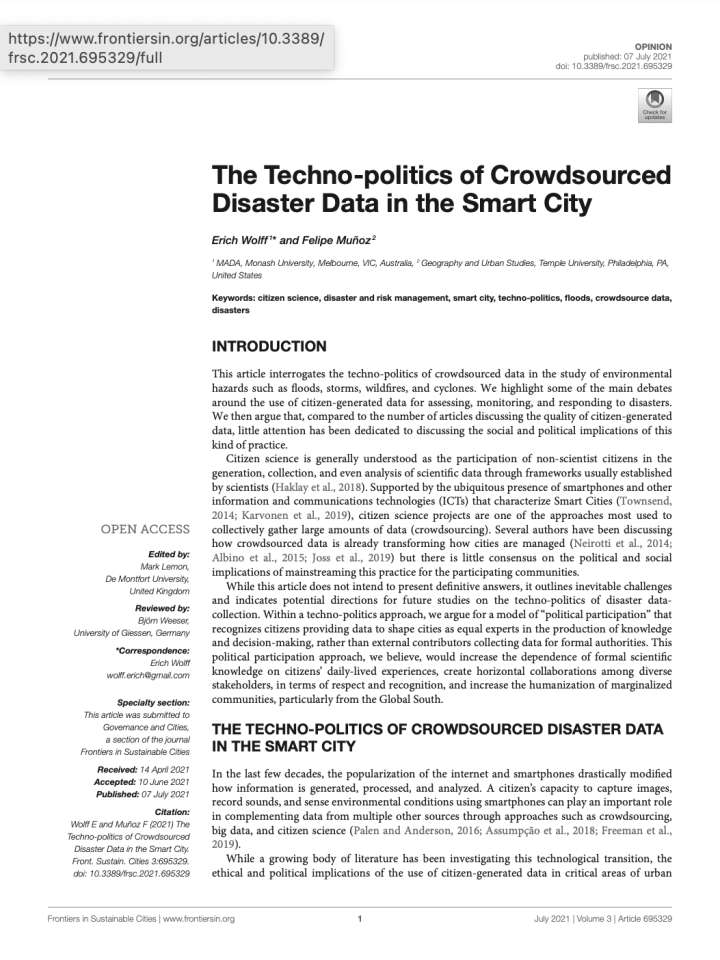The techno-politics of crowdsourced disaster data in the smart city
This article interrogates the techno-politics of crowdsourced data in the study of environmental hazards such as floods, storms, wildfires, and cyclones. We highlight some of the main debates around the use of citizen-generated data for assessing, monitoring, and responding to disasters. We then argue that, compared to the number of articles discussing the quality of citizen-generated data, little attention has been dedicated to discussing the social and political implications of this kind of practice.
While this article does not intend to present definitive answers, it outlines inevitable challenges and indicates potential directions for future studies on the techno-politics of disaster data collection. Within a techno-politics approach, we argue for a model of “political participation” that recognizes citizens providing data to shape cities as equal experts in the production of knowledge and decision-making, rather than external contributors collecting data for formal authorities. This political participation approach, we believe, would increase the dependence of formal scientific knowledge on citizens' daily-lived experiences, create horizontal collaborations among diverse stakeholders, in terms of respect and recognition, and increase the humanization of marginalized communities, particularly from the Global South.
Explore further
